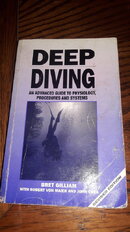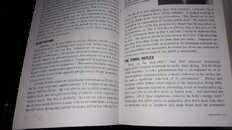Love your AutoCorrect!
On a related note: I did a high-altitude chamber ride at one point and we got to experience cognitive problems with hypoxia. There were four of us, each with a handler. Each of us was given a task to do; we got to altitude we took off our O2 masks and started out tasks. One pair was playing patty cake. One guy was dealing playing cards, saying the value, and tossing it into a wastebasket. I had a sheet with little math problems on one side and a maze on the other. We were told when we felt weird or uncomfortable just to put our O2 masks back on, or at 4 mins they'd do it for us. I did all my math problems, worked easily through the maze, looked around to see how the others were doing. Suddenly a mask got slapped on me. We "descended," and then watched a video of us. The pattycake pair, one guy was still doing it, the other has just stopped with his hands on his legs, not moving. The playing card guy was saying, "...2 of clubs, 3 of hearts, jack of spades, jack of spades, jack of spades..." He was still tossing the cards in the waste basket, but his mind had stopped. My math problems fell apart about halfway through the page....I was still writing numbers, but they were randomly placed on the page with no relation to the problems; my pencil track on the maze just started at some random point and moved randomly. None of us were aware of anything unusual during the hypoxia.





